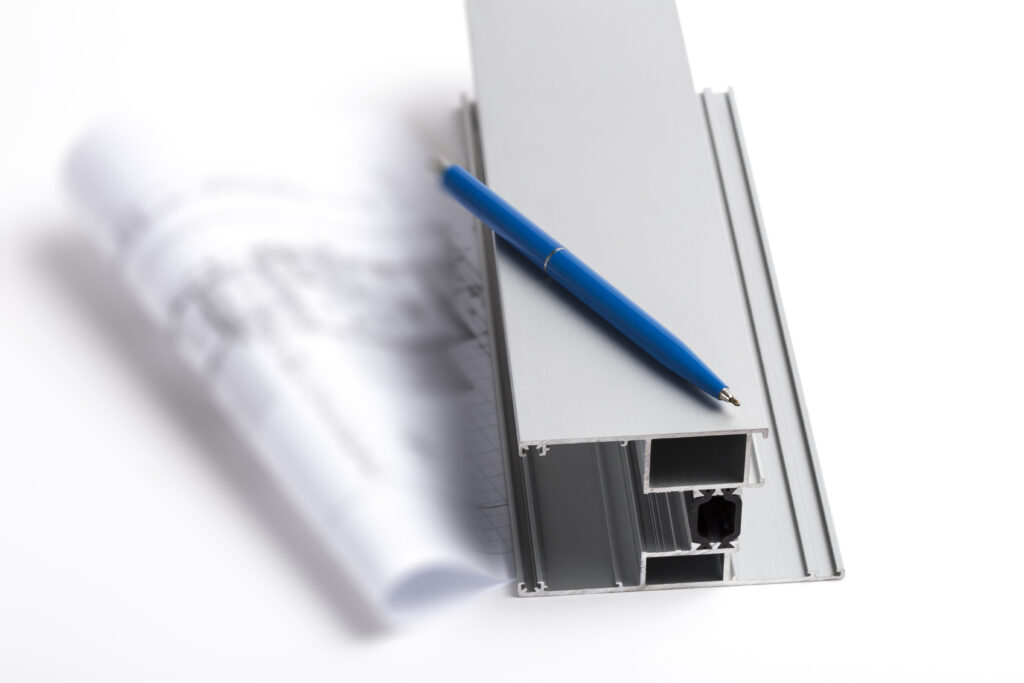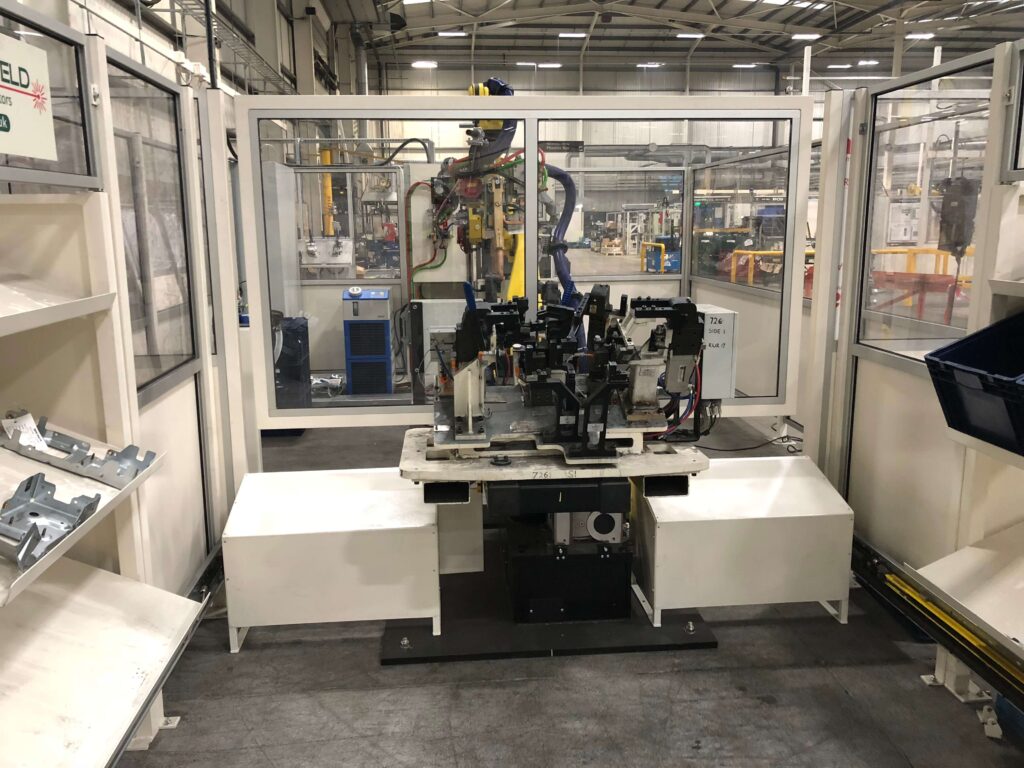Versatile, lightweight, durable, corrosion resistant and cost effective
Aluminium extrusions for manufacturing industry
Aluminium extrusions in manufacturing
Aluminium plays a central role in modern manufacturing. It has a unique combination of properties. It is strong, lightweight, durable and corrosion-resistant. Aluminium is widely used across numerous industries including aerospace, automotive and electronics.
If you are a manufacturer with a requirement for an aluminium extrusion, we can help.

Why aluminium is valued in manufacturing
Aluminium’s appeal lies in its strength-to-weight ratio. Although it is only about a third the weight of steel, aluminium provides a high level of structural strength, making it ideal for applications where weight reduction is important. For example within transport and machinery.
Its natural corrosion resistance is another benefit. Aluminium forms a protective oxide layer when exposed to air, reducing the need for additional surface treatments. This makes it suitable for use in challenging manufacturing environments as well as the for manufactured products.
Aluminium is a malleable and conductive material. It can be extruded into complex shapes with tight tolerances. It is an efficient conductor of heat and electricity, which explains its popularity in both mechanical and electrical components.
Key uses across manufacturing sectors
- Transport and automotive
Aluminium is widely used in cars, trucks, trains and aircraft. In automotive manufacturing, for example, it helps to reduce vehicle weight, improving fuel efficiency and lowering emissions. In the aerospace industry, its the low weight of aluminium delivers better payload capacity and fuel economy. - Construction and infrastructure
Due to its strength, corrosion resistance and aesthetic appeal, aluminium is used in window frames, curtain walling, roofing systems and cladding panels. Its recyclability provides sustainability benefits in the built environment. - Electronics and electrical systems
Aluminium’s excellent conductivity makes it an essential material in electrical transmission lines, circuit boards and heat sinks. Its use in consumer electronics helps to reduce weight, whilst maintaining structural integrity. - Packaging and consumer goods
Aluminium is used in food, pharmaceuticals and drinks packaging as well as many other sectors. It is lightweight, non-toxic and provides an effective barrier against light, oxygen and moisture. Aluminium is also used in furniture, kitchenware and home appliances due to its formability and finishing options. - Industrial machinery and equipment
In manufacturing environments, aluminium is used in machine components, tooling and frameworks. Aluminium extrusions are also to be found in modular assembly systems, guards and enclosures.

Which industries use aluminium?
Aerospace, Aircraft manufacturing, Air conditioning systems, Aluminium fittings, Antenna manufacturing, Architectural lighting, Assembly lines, Automation systems, Automotive Radiators, Aviation, Battery storage systems, Bicycles, Boat fittings, Cable management, Car manufacturing, Commercial vehicles, Consumer electronics, Defence, Diagnostic equipment, Ductwork and vents, Electric vehicles, Electrical, Electrical enclosures, Electronics, Exhibition systems, Furniture, Home appliances, Industrial electronics, Industrial lighting, Industrial machinery, Kitchenware, Laptops and tablets, LED lighting, Lighting, Medical devices, Military vehicles, Mobile infrastructure, Mobility aids, Office furniture, Outdoor furniture, Packaging, Piping systems, Rail transport, Renewable energy, Retail signage, Road signs, rooflight manufacturing, Satellite components, Satellite equipment, Semiconductors, Shipbuilding, Signage, Solar panel frames, Spacecraft and satellite components, Sports equipment, Street lighting, Telecommunications, Track infrastructure, Urban transit systems, Wind turbine components.
Conclusion
Aluminium is a material of choice across manufacturing due to its versatility, efficiency and environmental benefits. The combination of lightweight strength, corrosion resistance and formability ensures its continued relevance in a wide range of industrial applications.
Aluminium extrusions bring performance, adaptability and long-term value, making them an indispensable choice within modern manufacturing.
From design to delivery, Love Aluminium provides a one stop shop solution. Our complete, end-to-end service for manufactuers includes design, tooling, extrusion, finishing and logistics.
We hope that you have found this article on aluminium extrusions within manufacturing industry to be useful. If you have any questions or would like a quote, by all means contact us.
